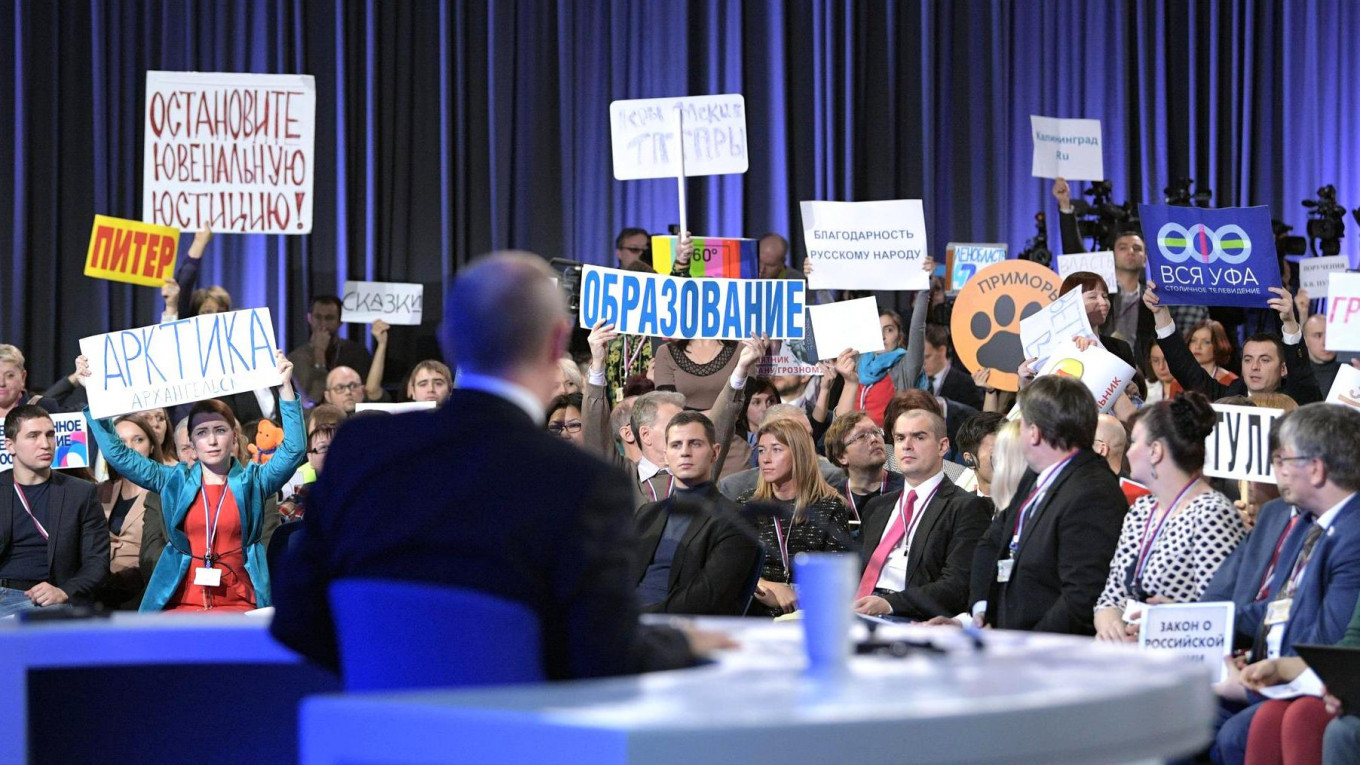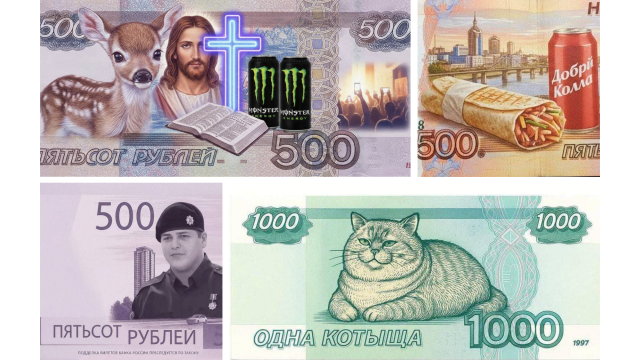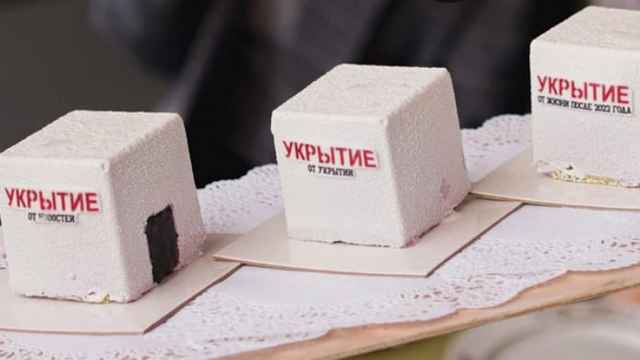Vladimir Putin shared some of his precious time with more than 1,400 journalists today. For four wonderful hours, the president responded to questions about all matters under the sun, as members of the audience elbowed for his attention.
This year, as in years past, many people brought homemade signs, hoping a vivid or well worded banner might win them the chance to open their mouths. Others brought signs intending simply to express their love for Putin, and at least one guest brought a whole binder of slogans to troll the president.
We don’t know all the reasons for all the banners in the audience today, but the winner of this unspoken contest was undeniably the woman who brought a poster showing Putin as Superman. And she even picked the Christopher Reeves version, not Zack Snyder’s depressive, brooding reboot.
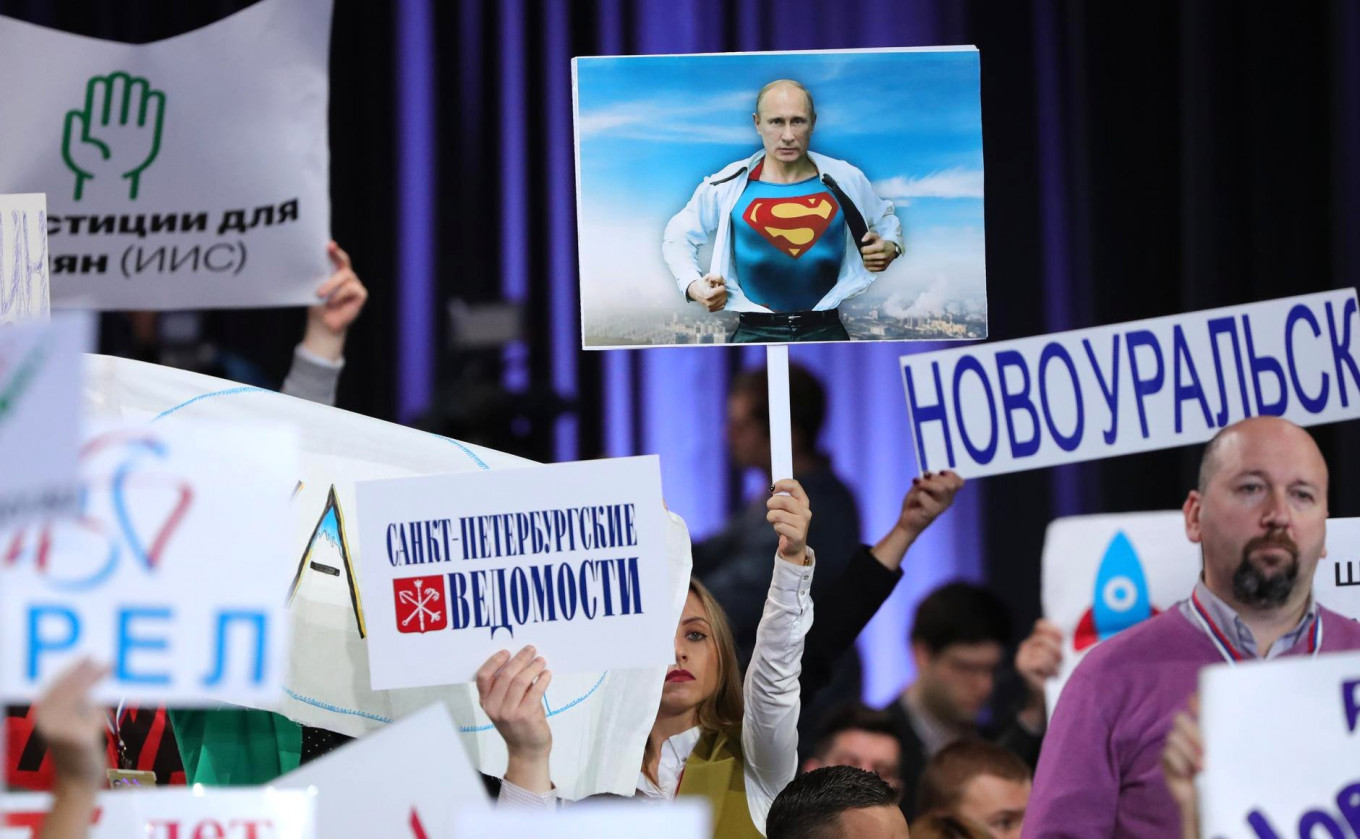
Putin the Kryptonian wasn’t journalists’ only love note to the president, however. One man came armed with a slogan just as cosmic: “Putin is outer space.”
Donald Trump came up several times during the press conference, and — though Vladimir Putin had only kind things to say about the U.S. president-elect — his biggest fan in the audience was far-right activist Maria Katasonova, who campaigned harder for Trump this fall than she did for herself, while running for a seat in the Russian parliament. (It should come as no surprise that she lost that race badly.)
Katasonova came to the conference with a portrait she unveiled earlier this year depicting Putin, Trump, and French nationalist Marine Le Pen, all looking very stoic and severe.
It wasn’t all gooey love for Putin, however, and at least one person in the audience came equipped with a rather long poll and a whole arsenal of signs printed with tough questions about Russia’s Federal Penitentiary Service.
Political activist Maria Baronova, who was defeated in the same Duma race as Katasonova, catalogued the prison-related signs, photographing at least four of them. It’s still unclear who was holding the signs, which asked: “Will inmates be fed worse?” “Does the Federal Penitentiary Service not have enough money for light bulbs?” “The Federal Penitentiary Service is the government’s six biggest expense.” “The recidivism rate is 50 percent in Russia and 25 percent in Belarus.”
“While there's a question going on about the Rosneft deal, I'm still watching this whole story with the guy holding up signs about the prisons.”
Another of these signs even found its way into the live video feed on Russia Today, where a journalist was pictured beside the words “Russia’s Federal Penitentiary Service has the second highest mortality of any place in Europe.”
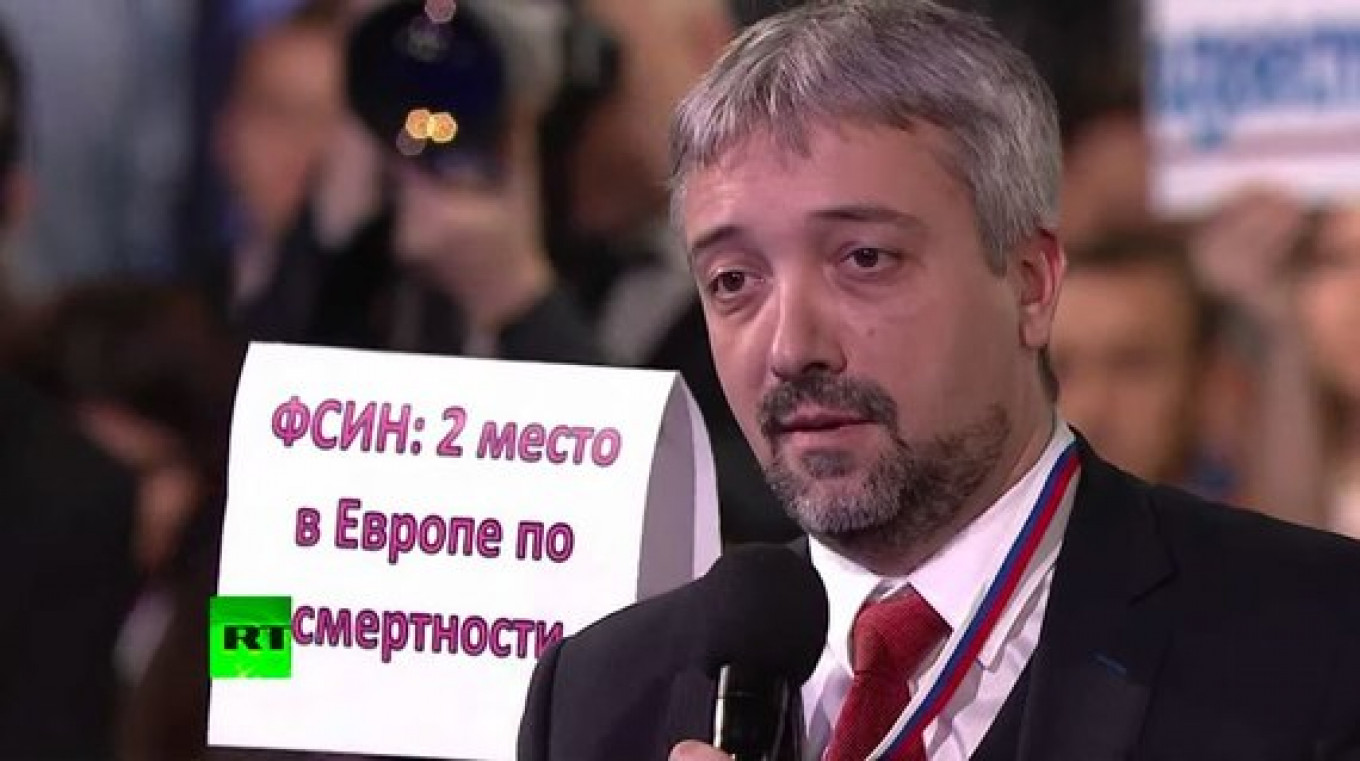
The award for boldest banner unquestionably goes to Roman Dryakin, a journalist from Saratov, who brought a sign printed in ominous red and black ink, reading, “Ask me about dictatorship,” featuring a picture of Vladimir Putin.
Dryakin later said the Kremlin’s security guards initially stopped him from entering the main hall, summoning a representative from the president’s press team, who examined the poster and then reportedly said, “Some subtle work here,” before allowing him to take his seat.
A Message from The Moscow Times:
Dear readers,
We are facing unprecedented challenges. Russia's Prosecutor General's Office has designated The Moscow Times as an "undesirable" organization, criminalizing our work and putting our staff at risk of prosecution. This follows our earlier unjust labeling as a "foreign agent."
These actions are direct attempts to silence independent journalism in Russia. The authorities claim our work "discredits the decisions of the Russian leadership." We see things differently: we strive to provide accurate, unbiased reporting on Russia.
We, the journalists of The Moscow Times, refuse to be silenced. But to continue our work, we need your help.
Your support, no matter how small, makes a world of difference. If you can, please support us monthly starting from just $2. It's quick to set up, and every contribution makes a significant impact.
By supporting The Moscow Times, you're defending open, independent journalism in the face of repression. Thank you for standing with us.
Remind me later.


